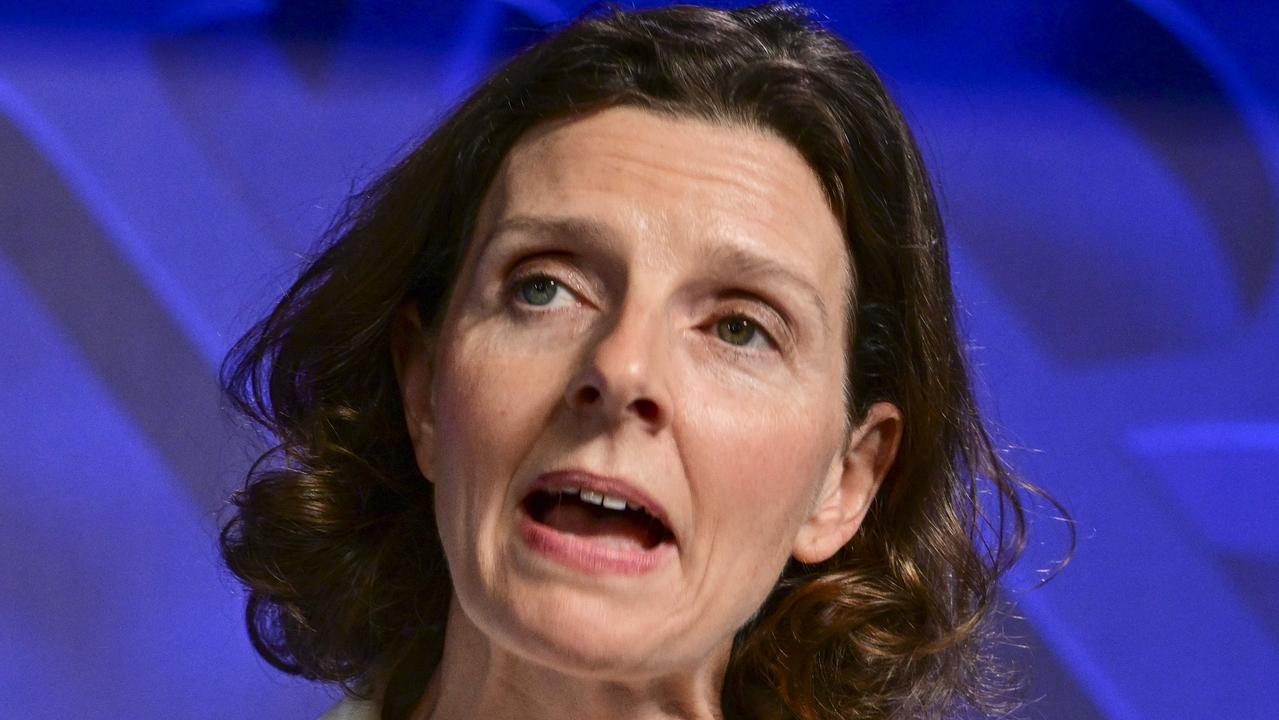A key independent says both major parties need to take an ambitious plan on tax reform to the next election with “everything on the table”, warning that otherwise Australia will fall behind.
Teal independent MP Allegra Spender’s call follows the Albanese government’s decision to rewrite stage 3 tax cuts, and with rumbles some Labor backbenchers want the party to revisit contentious negative gearing concessions.
The Wentworth MP and the Australia Institute’s executive director Richard Denniss used a debate at the National Press Club on Wednesday to agree that real reform was needed.
Ms Spender, who has a background in economics, said it would not do to just “tweak” tax policy, and said th failure of both major parties to take tax reform to the last election as “shortsighted, unambitious”.
“They cannot go to another election saying, ‘you know what, we’re not going to touch things’, because they just will not be believed. And that’s good,” she said.
“Because frankly, promising not to act doesn’t work if we are going to deal the major issues that this country faces.”
Mr Denniss, who has long been a critic of the original suite of stage 3 tax cuts, said the Albanese government’s decision to break the election promise because of the changed economic conditions was “the biggest and most honest piece of tax reform in decades”.
“Promises are contextual. I don’t think Labor should have gone to the last election promising to support the stage three tax cuts because they were a bad idea,” he said.
“But even if they’d promised to do them and I thought it was a good idea at the time … and then interest rates went up 13 times, and energy prices went up, and real wages fell, and they turned around and said, ‘I think we should break our promise’, I’d still be sitting here today saying good call. That’s what grown-ups do.”
He said the question now was whether or not the Coalition backed in the changes to stage 3 before or after the Dunkley by-election on March 2.
“I think reality is going to bite and the only thing Peter Dutton is in control of at the moment is the timing of that,” he said.
Ms Spender said both sides of politics had a real opportunity to make tax matter on the “most profound economic and social challenges facing our country”, namely on intergenerational equity on housing, for productivity and for climate action.
“The government can defend its decision to break a promise or they can live up to the legacy of Hawke and Keating by taking real reform to the next election and build a consensus for change,” she said.
“The same is true of the opposition.
“They can oppose everything that comes from the government or they can embrace their own reforms in the visions of Howard and Costello and make positive contributions and positive propositions.”
She said “everything has to be on the table” in the discussions, including capital gains tax and super tax concessions, stamp duty, GST and payroll.
Ms Spender said she would consider each party’s position on tax reform if the next election ended in a hung parliament.
“This is their choice now, this is the opportunity the government has to say, ‘OK, there are some really significant issues with our tax system. This is the time to change it, to look that in the face and to go the election with that’,” she said.
“And ditto from an opposition point of view – they can say, no, no, no, they can criticise all they like, but until they’re serious about putting a policy forward I think a lot of people will say, ‘What is your plan instead?’
“I hope very much we won’t get to that place. If it comes to that, I would certainly say that should be a negotiation point if we come to a hung parliament.
Mr Denniss said there were four things government could do to fix the tax system by reducing its reliance on personal income tax: to tax things we want less of and subsidise what we want more of, to do the simple things first, to be fair, and to think big.
“The easy way to reduce our reliance on personal income tax would be to increase the petroleum resource rent tax. Let’s do that. Let’s collect billions of dollars of extra revenue and if the consequence of that is (it) discourages some investment in fossil fuels, as luck would have it, that’s exactly what the climate scientists tell us needs to happen,” he said.
